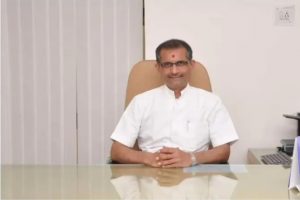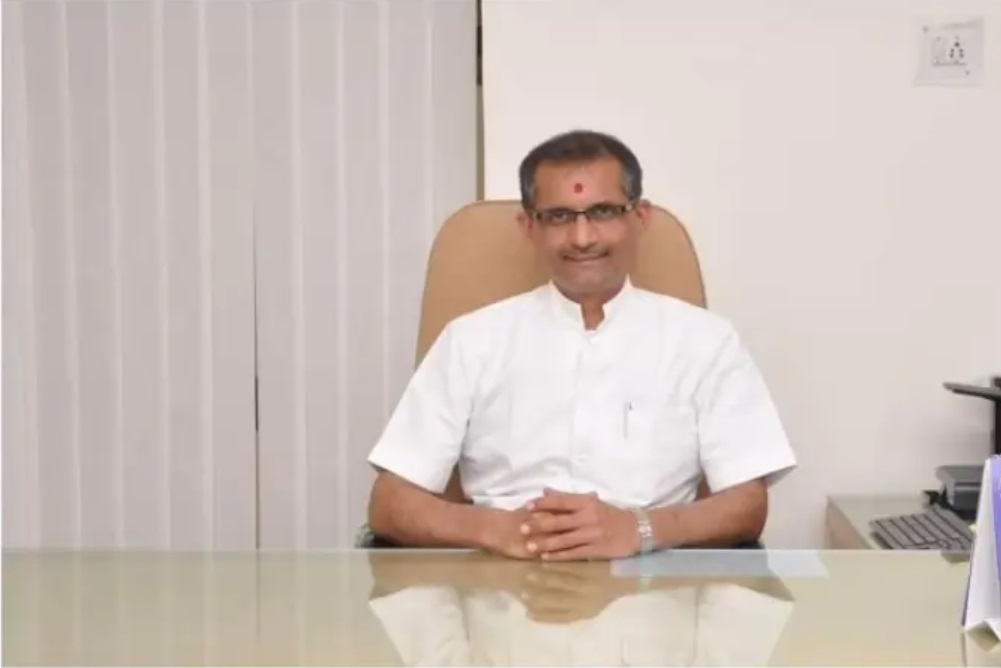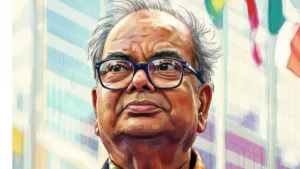
Educationist Manoj Soni will take oath as the chairman of Union Public Service Commission (UPSC). Soni, who joined the Commission as the member on June 28, 2017, has been performing the duties of the UPSC chairman since April 5, 2022. Prior to his appointment in the UPSC, Soni has served three terms as Vice-Chancellor. These include two consecutive terms from August 1, 2009 to July 31, 2015 as VC of Dr Babasaheb Ambedkar Open University (BAOU), Gujarat; and one term as VC of The Maharaja Sayajirao University of Baroda (The MSU of Baroda) from April 2005 to April 2008. A scholar of political science with specialisation in international relations studies, he has taught international relations at Sardar Patel University (SPU), Vallabh Vidyanagar between 1991 and 2016, except for the period when he served as Vice-Chancellor of the two universities.
Buy Prime Test Series for all Banking, SSC, Insurance & other exams
Soni awards and recognitions
- In 2013, he was conferred with the rare honour of “Honorary Mayor-President of the City of Baton Rouge” by the Mayor-President of Baton Rouge, Louisiana, USA, for his exemplary leadership in empowering disadvantaged section of society with IT literacy.
- In 2015, the Chartered Institute of Management Accountants, London, UK, honoured him with the World Education Congress Global Award for Distance Learning Leadership.
- Soni has in the past served on the Boards of Governors of several institutions of higher education and public administration. He was also a member of a quasi-judicial body constituted by an Act of the Gujarat Legislature, which regulates the fee structure of the un-aided professional intuitions in Gujarat.
All about UPSC:
- The Union Public Service Commission (UPSC) is India’s premier central recruitment agency for recruitment of all the Group ‘A’ officers under Government of India. It is responsible for appointments to and examinations for the Group ‘A’ posts of several central government establishments which also includes the central public sector undertakings and the central autonomous bodies. While Department of Personnel and Training is the central personnel agency in India.
- The UPSC was established on 1 October 1926 by the Government of India under the Government of India Act, 1919. The Commission is headquartered in New Delhi and has regional offices in Allahabad, Bhopal, Chandigarh, Chennai, Guwahati, Hyderabad, Kolkata, Lucknow, Mumbai, and Patna.
- The UPSC is headed by a Chairman who is appointed by the President of India. The Chairman is assisted by a number of members who are also appointed by the President of India. The members of the UPSC are drawn from a variety of backgrounds, including the civil services, the armed forces, and the academia.
- The UPSC conducts a number of competitive examinations for the recruitment of Group ‘A’ officers in the central government. The most prestigious of these examinations is the Civil Services Examination, which is also known as the IAS Examination. The Civil Services Examination is a three-tier examination that tests the candidates on their knowledge of general studies, English, and their choice of subjects.
- The UPSC also conducts examinations for the recruitment of officers in other Group ‘A’ services, such as the Indian Foreign Service, the Indian Police Service, and the Indian Audit and Accounts Service.
- The UPSC is an independent constitutional body and its decisions are not subject to the approval of any other authority. The Commission is committed to ensuring that the recruitment of Group ‘A’ officers is based on merit and that the officers recruited are of the highest caliber.
- The UPSC has played a vital role in the development of the Indian civil service. The Commission has helped to ensure that the civil service is impartial, efficient, and responsive to the needs of the people. The UPSC has also helped to promote merit and excellence in the civil service.
- The UPSC is a highly respected institution in India and its reputation is based on its commitment to merit, excellence, and impartiality. The Commission has played a major role in the development of India and its contribution to the country is immense.
Also Read: Karnataka DGP Praveen Sood appointed next CBI director




 From April 1, Toll Booths Go Fully Digit...
From April 1, Toll Booths Go Fully Digit...
 International Mother Language Day 2026: ...
International Mother Language Day 2026: ...
 Legendary Bengali Author Shankar Passes ...
Legendary Bengali Author Shankar Passes ...








